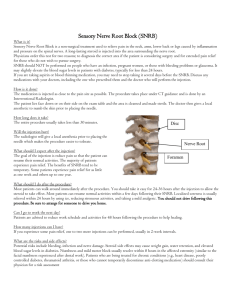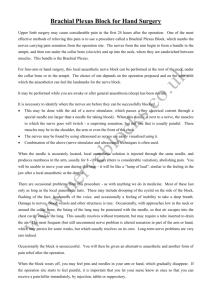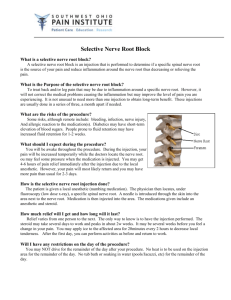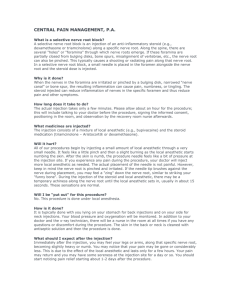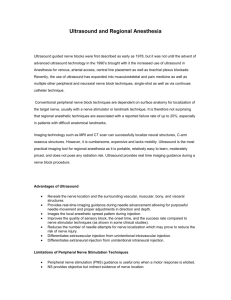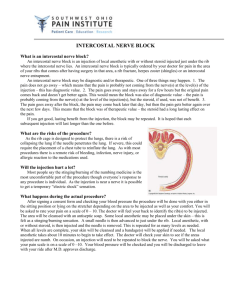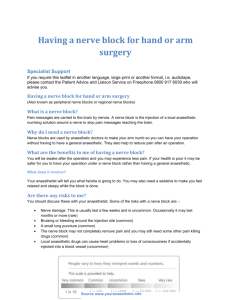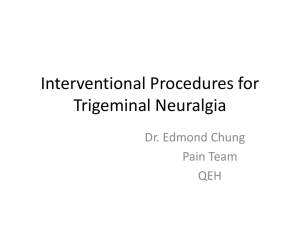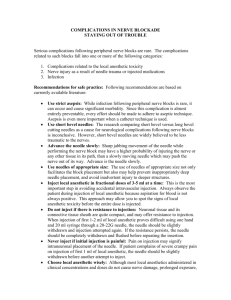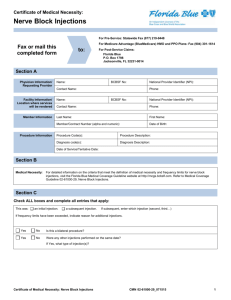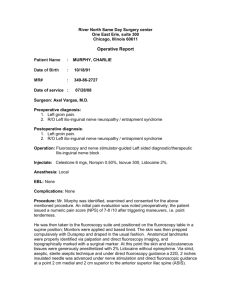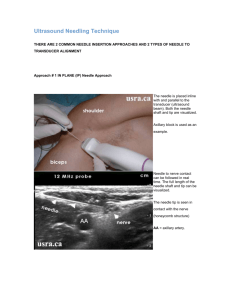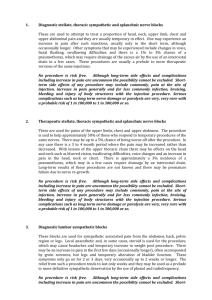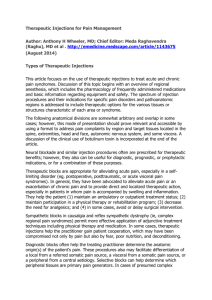Thoracic and Lumbar Nerve Root Block
advertisement
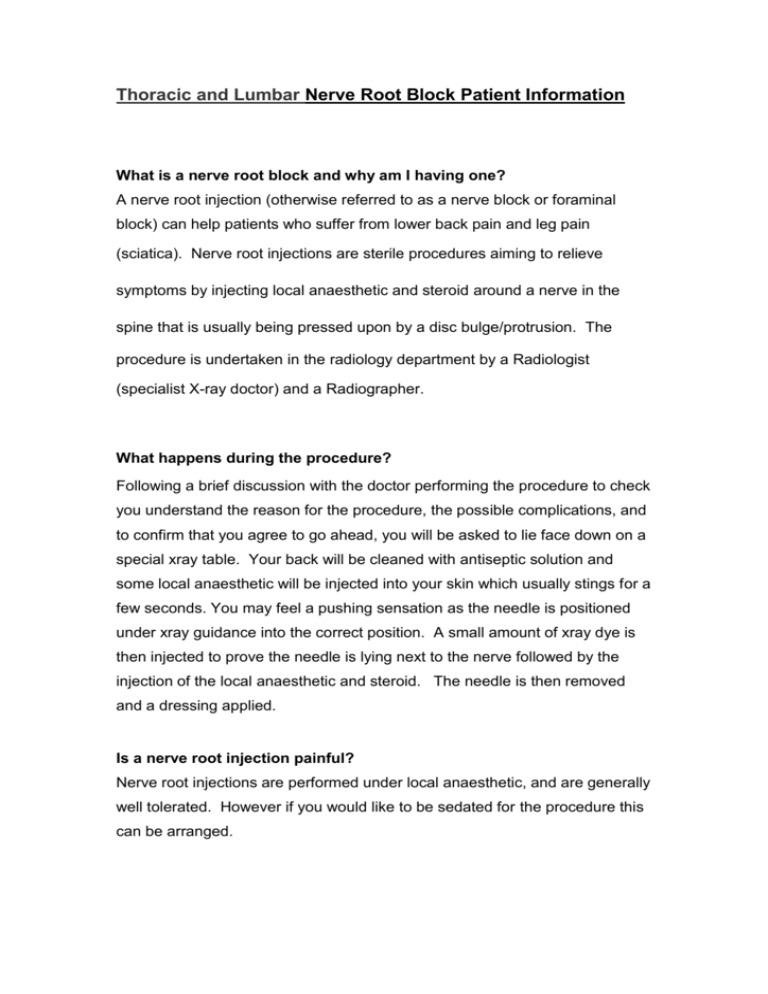
Thoracic and Lumbar Nerve Root Block Patient Information What is a nerve root block and why am I having one? A nerve root injection (otherwise referred to as a nerve block or foraminal block) can help patients who suffer from lower back pain and leg pain (sciatica). Nerve root injections are sterile procedures aiming to relieve symptoms by injecting local anaesthetic and steroid around a nerve in the spine that is usually being pressed upon by a disc bulge/protrusion. The procedure is undertaken in the radiology department by a Radiologist (specialist X-ray doctor) and a Radiographer. What happens during the procedure? Following a brief discussion with the doctor performing the procedure to check you understand the reason for the procedure, the possible complications, and to confirm that you agree to go ahead, you will be asked to lie face down on a special xray table. Your back will be cleaned with antiseptic solution and some local anaesthetic will be injected into your skin which usually stings for a few seconds. You may feel a pushing sensation as the needle is positioned under xray guidance into the correct position. A small amount of xray dye is then injected to prove the needle is lying next to the nerve followed by the injection of the local anaesthetic and steroid. The needle is then removed and a dressing applied. Is a nerve root injection painful? Nerve root injections are performed under local anaesthetic, and are generally well tolerated. However if you would like to be sedated for the procedure this can be arranged. Only the skin is anaesthetised and if inadvertently the targeted nerve is directly touched by the needle (the nerves cannot be seen under xray, merely their approximate position), you may feel a severe electric shock type pain in the leg which will settle once the needle is withdrawn. When the final therapeutic anaesthetic and steroid mix is injected next to nerve some patients can feel a slight pain and numbness in the back and leg. This is common and usually means the needle is correctly positioned. Are there any risks with this treatment? Nerve blocks, although generally very safe, are not entirely risk-free. There is an extremely small chance of infection and the procedure is carried out in a sterile fashion to minimise this. Bleeding is also extremely unlikely as the needles used are very fine, but as a precaution we ask patients taking warfarin or clopidogrel to discontinue them where possible. Please contact the radiology department where your injection will be performed if you are taking clopidogrel or warfarin. Aspirin can be taken as normal. There are very rare reports of serious nerve damage as a result of nerve root injections which can result in the permanent loss of leg function. Fortunately this complication is very rare, estimated to occur once in every million injections. More commonly patients can suffer with a temporary 'dead leg' which usually last up to several hours and very occasionally persists with minor loss of sensation or numbness. What happens after the nerve root injection We normally ask patients to wait in the department for 10-20 minutes following the procedure to make sure there are no adverse effects before going home with their escort. If you are feeling light headed or have a severe numb leg then you may be observed for longer. There is no guarantee that your pains will resolve following the injection. In some patients where there is uncertainty as to which nerve is causing the pain, the injection is used to confirm the involved nerve, as well as to improve the symptoms. Occasionally if the first injection is ineffective, the procedure is repeated targeting a different nerve usually at an adjoining level. All patients undergoing a nerve block are usually reviewed by the referring consultant a few weeks after the procedure and are asked to keep a diary of the symptoms after the injection to assess their response and guide further treatment. Further information Please contact Berkshire Imaging .

